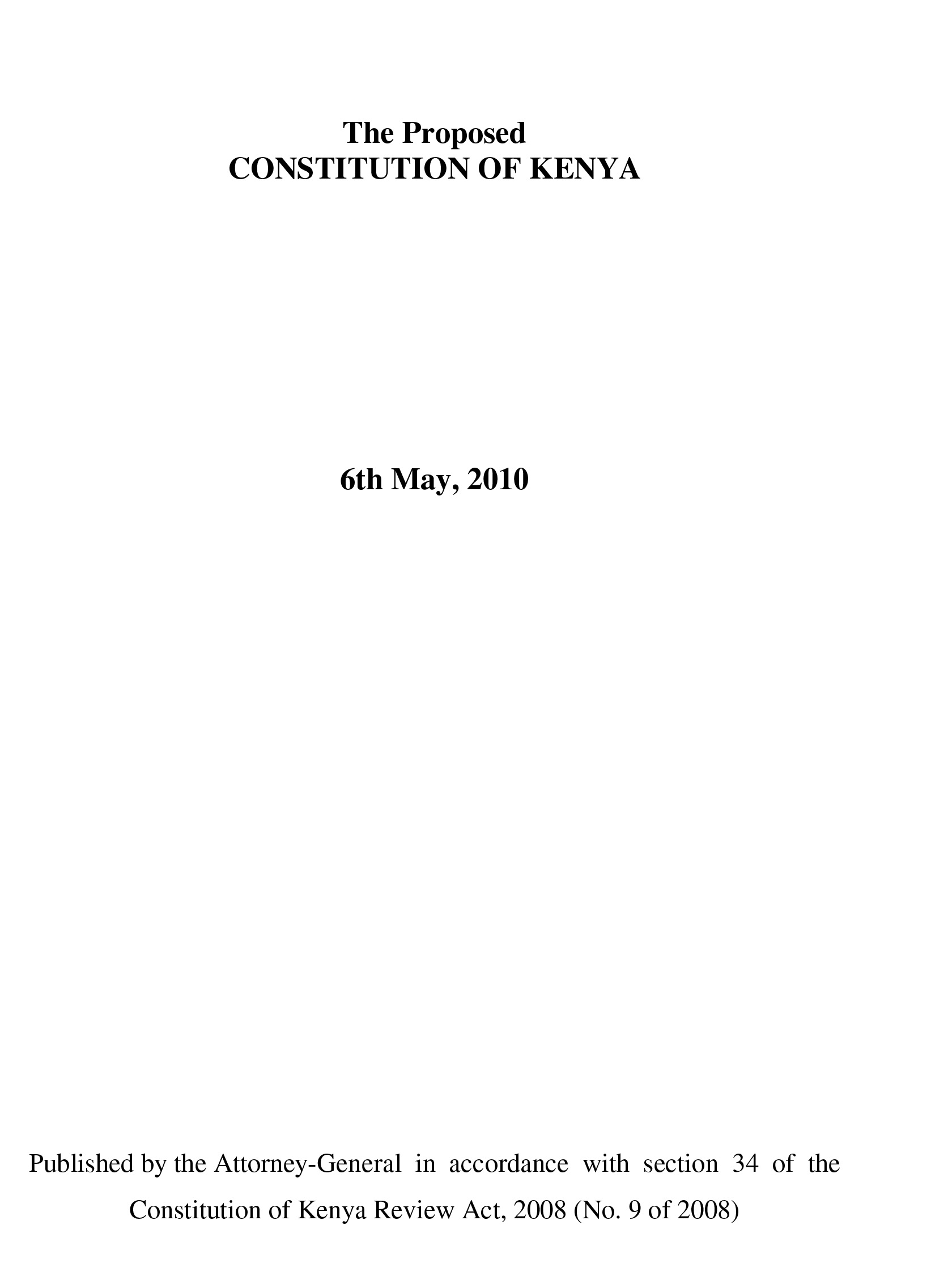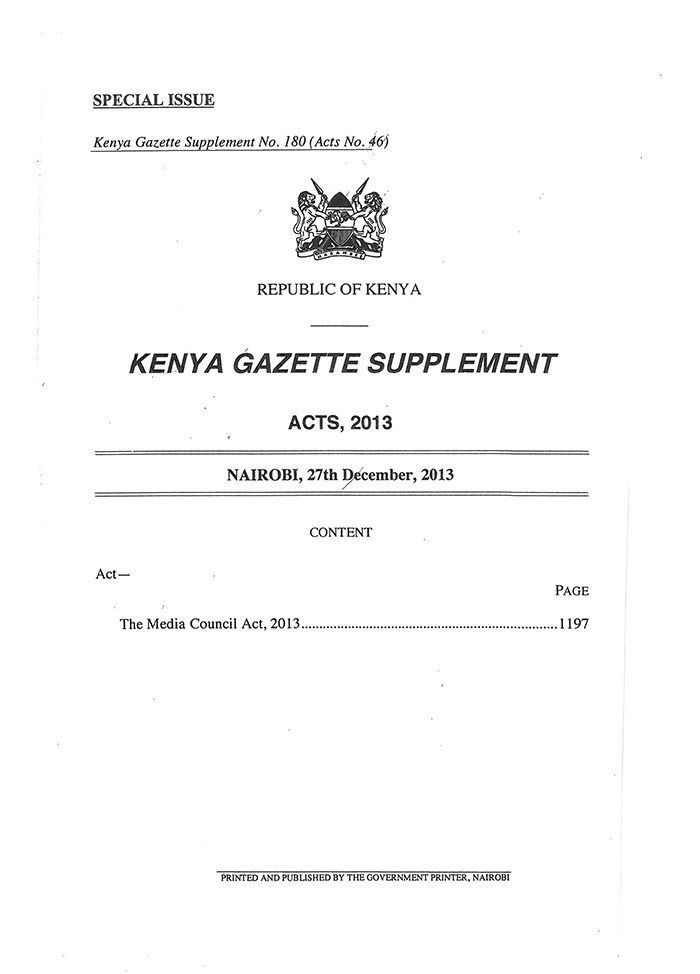The Media Council of Kenya is an independent national institution established by the Media Council Act, No. 20 of 2013 for purposes of setting of media standards and ensuring compliance with those standards as set out in Article 34(5) of the Constitution and for connected purposes.
The 15 functions of MCK are outlined in Section 6 of the MCK Act which reads as follows:
- promote and protect the freedom and independence of the media;
- prescribe standards for journalists, media practitioners and media enterprises;
- ensure the protection of the rights and privileges of journalists in the performance of their duties;
- promote and enhance ethical and professional standards amongst journalists and media enterprises;
- advise the government or the relevant regulatory authority on matters relating to professional, education and the training of journalists and other media practitioners;
- set standards, in consultation with the relevant training institutions, for professional education and training of journalists;
- develop and regulate ethical and disciplinary standards for journalist’s, media practitioners and media enterprises;
- accredit journalists and foreign journalists by certifying their competence, authority or credibility against official standards based on the quality and training of journalists in Kenya including maintaining of a register of journalists, media enterprises and such other related registers as it may deem fit and issuance of such documents evidencing accreditation with the Council as the Council shall determine;
- conduct an annual review of the performance and the public opinion of the media, and publish the results in at least two daily newspapers of national circulation;
- through the Cabinet Secretary, table before Parliament reports on its functions;
- establish media standards and regulate and monitor compliance of media standards;
- facilitate resolution of disputes between the government and the media, between the public and the media and intra media;
- compile and maintain a register of accredited journalists, foreign journalists, media enterprises and such other related registers as it may consider necessary;
- subject to any other written law, consider and approve applications for accreditation by educational institutions that seek to offer courses in journalism; and
- perform such other functions as may be assigned to it under any other written law

